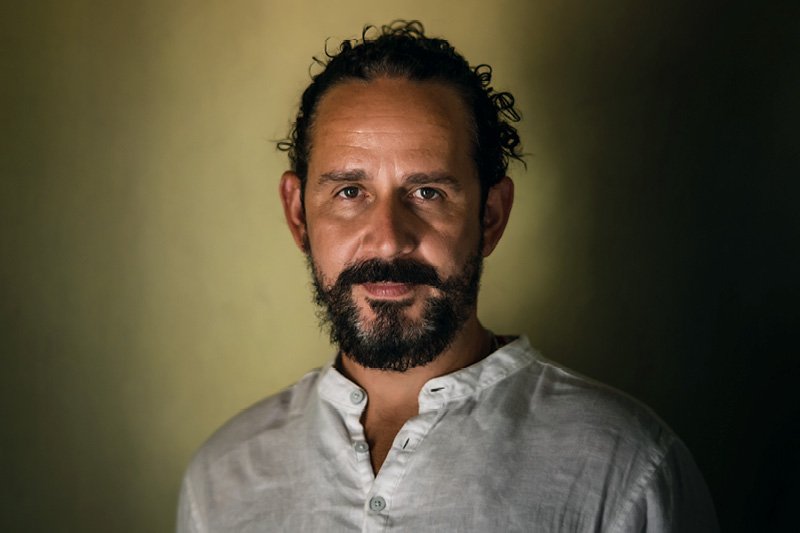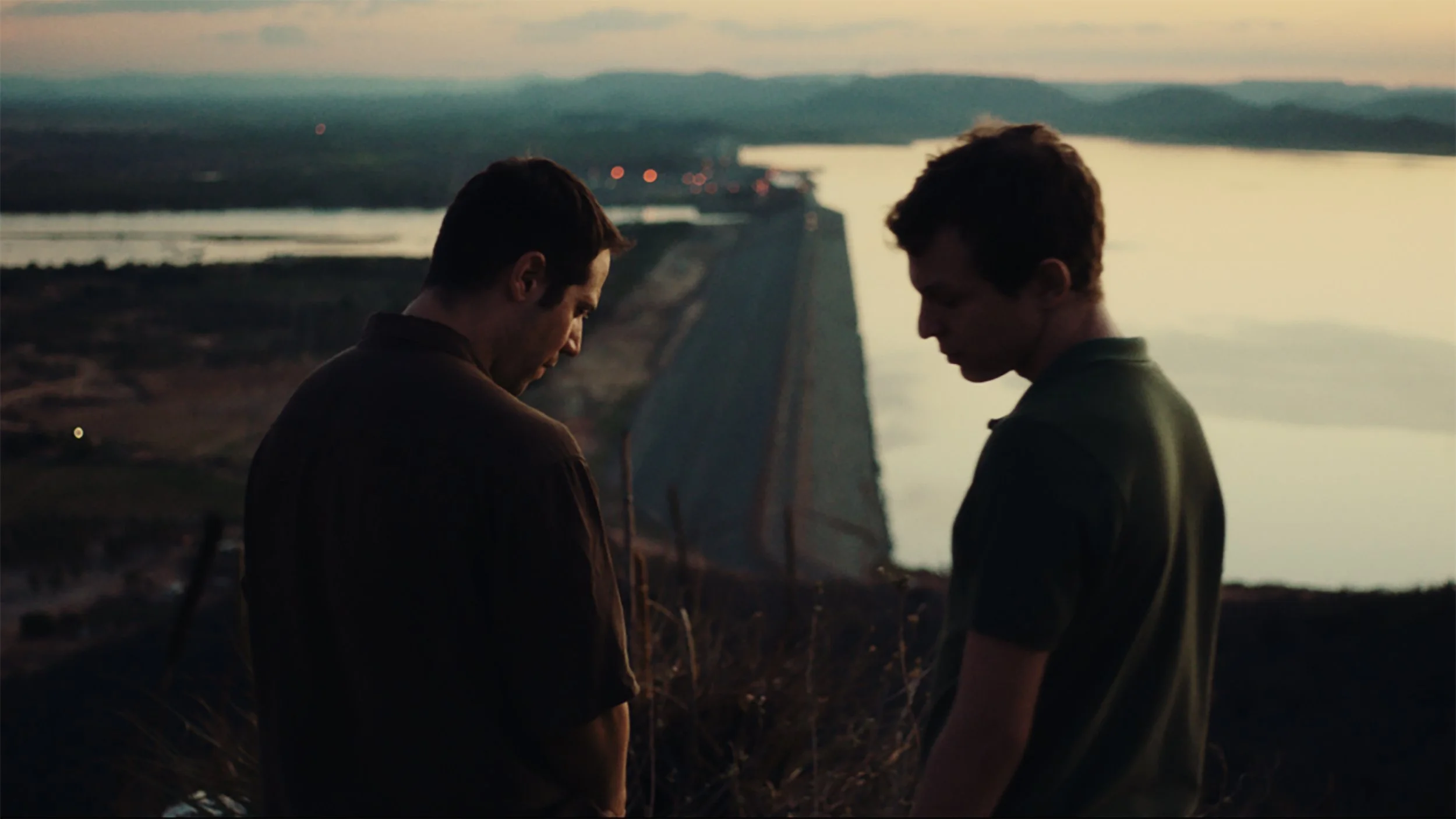By Mafe Simonsen
Private Desert / Deserto Particular is a Brazilian queer romance drama that has set off waves in festivals, received critical acclaim, and was selected as Brazil’s selection for the Academy Awards last year. The film’s director Aly Muritiba talked with TropicalFRONT to help break down how important Brazil’s unique regional histories and stereotypes are to understand the film and the main characters' growth as they fall in love.
Muritiba first gained recognition for his 2011 short film A Factory that made the shortlist for the Academy Awards in the category for best live-action short. He has directed five feature films including Rust and Jesus Kid, and his work has screened at some of the most prestigious film festivals including Cannes Critics’ Week, Sundance, Venice, and San Sebastian, winning over 200 awards internationally. Additionally, Muritiba has directed for television and major streaming platforms.
Born and raised in the north of Brazil, in the State of Bahia, at 19 Muritiba moved to the southern metropolis of São Paulo, before finally going further south to Curitiba to pursue his film studies and career. In Brazil, as you move further south, the population is increasingly whiter, wealthier, and looks down upon the North as a place for vacations. This south-bound trajectory is backtracked by Private Desert’s protagonist Daniel, played by Antonio Saboia, as he goes north in search of Sara.
The South of Brazil, where Daniel's character is from, is a highly conservative region, his character echoes the reality of transphobic macho culture, educated in a patriarchal system, and closely tied to the military. On the other hand, Sarah/Robson is from the Northeast, which is seen as a more open, warmer culture.
How has your experience of being born and raised in Bahia and living for the past 17 years in Curitiba helped you make this film?
The fact that I grew up in [the north] Bahia and started producing my films in the south [Curitiba] was very formative for my view of Brazil’s internal differences. When I decided to make a film about intolerance, about transforming the possibility of how we see each other, it seemed natural for me to span the diverse space between the South of Brazil and the Northeast of Brazil—Curitiba in the south to Sobradinho in the north. After all, we don't talk about intolerance when we are surrounded by people just like us.
The South of Brazil is generally conservative. The region’s history of occupation and colonization is more recent than in the Northeast. Immigrants from extremely Catholic and conservative places, Poland and Ukraine, were central to establishing a more conservative, European culture. They have a desire to preserve their past, to try to reproduce customs from the land they came from and maintain their identity. This conservatism reflects itself in politics, and how you educate your children and your descendants. In the case of Brazil, it also reflects a sense of superiority. After all, the majority of the population in the South is white, third or fourth-generation European, in a country where racial prejudice is very strong.
The population of Bahia is considered much more liberal, festive, and sensual. I'm in Curitiba now, and my body is completely covered up. In Bahia, we would probably be doing this interview, and I would be wearing a tank top. You would see my arms shining with sweat, which is much less conservative than a white sweatshirt. So these are very different geographic places and cultures—rooted in the different histories of the north and south—which has resulted in very different behaviors, and this is portrayed in the film.
Daniel uses the word ‘incident’ when he describes when he brutalized a police cadet. Talk more about the character's insistence to use this word to talk about his abuse of power.
You can see that he feels guilty, but you can also see that he doesn't recognize his responsibility to others. Then he uses the same excuse as ex-Minister of Justice, Sergio Moro, when he tried to implement the so-called "excluder of illegality." That would have changed the law to give any policeman the right to justify their actions, regardless of what they did, killing whoever they kill or beating whoever they brutalized. Fortunately, that didn't pass because it would be a license to kill. But the police already operate in practice using this concept of exclusion of lawfulness, they are trained in the logic that we are at a war, and you have the right to kill when you are at a war.
Military training—a pity that our police are still military in Brazil, a remnant of the dictatorship - is a training in which contestation is impossible. If you dare to think, or protest, you will be suspended, you can be arrested. I was a military fireman for a while and was arrested constantly because I disagreed with some orders. Daniel's character as an instructor at the military academy means that his job is to teach that military culture. So, probably the recruit that was beaten because he questioned something. Daniel went to violence because it was the natural way to respond. After all, he was taught to act violently. He claims it was an incident or accident because that is how the military forces operate in Brazil.
Can you share Brazilians films that were references for you to do this film?
Suely in the Sky from Karim Aïnouz and Lower City from Sérgio Machado. In Private Desert there is a reference to Machado in the first scene of the film, when the character of Daniel arrives from a race the TV is screening a fragment of Lower City.
Private Desert is now playing at the Quad Cinema in New York City and opens, September 9 at the Laemmle Theatres in Los Angeles, followed by other U.S. cities.






